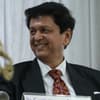Podcast
Questions and Answers
What is a key characteristic of an effective study title?
What is a key characteristic of an effective study title?
- It should include multiple concepts.
- It should be lengthy and descriptive.
- It should contain personal opinions.
- It should be written in the inverted pyramid format if lengthy. (correct)
What should be avoided when presenting the purpose of the study?
What should be avoided when presenting the purpose of the study?
- Following a funneling technique.
- Including citations.
- Using an opinionated statement. (correct)
- Making it well-organized.
Which statement best reflects the scope of a study?
Which statement best reflects the scope of a study?
- It describes the limitations of the anticipated outcomes.
- It elaborates on the researchers' personal motivations.
- It outlines the specific beneficiaries of the research.
- It indicates the coverage and boundaries of the research. (correct)
What role does the alternative hypothesis (Ha) play in research?
What role does the alternative hypothesis (Ha) play in research?
In qualitative research, what is a characteristic of hypotheses or assumptions?
In qualitative research, what is a characteristic of hypotheses or assumptions?
Who are considered usual beneficiaries of research findings?
Who are considered usual beneficiaries of research findings?
What is a recommended strategy for organizing the objectives of a study?
What is a recommended strategy for organizing the objectives of a study?
What is considered the 'INPUT' in the research methodology framework?
What is considered the 'INPUT' in the research methodology framework?
What is a common mistake researchers should avoid in their presentations?
What is a common mistake researchers should avoid in their presentations?
Which definition describes what a construct or word actually means?
Which definition describes what a construct or word actually means?
What does the term 'Sampling' refer to in research methodology?
What does the term 'Sampling' refer to in research methodology?
Which of the following best describes 'Research Subjects'?
Which of the following best describes 'Research Subjects'?
What is the role of 'Research Instruments'?
What is the role of 'Research Instruments'?
What does the 'Research Setting' refer to?
What does the 'Research Setting' refer to?
Which term describes a subset of the population elements analyzed in research?
Which term describes a subset of the population elements analyzed in research?
What is an essential aspect of 'Research Ethics'?
What is an essential aspect of 'Research Ethics'?
What is described as factors or variables that are not included in a study?
What is described as factors or variables that are not included in a study?
Which statement best represents the purpose of the Statement of the Problem section?
Which statement best represents the purpose of the Statement of the Problem section?
What does the introduction phrase 'The main objective of this study is to...' usually indicate?
What does the introduction phrase 'The main objective of this study is to...' usually indicate?
Which of the following is NOT typically included in a Review of Related Literature (RRL)?
Which of the following is NOT typically included in a Review of Related Literature (RRL)?
What does RRL provide beyond reviewing studies and literature?
What does RRL provide beyond reviewing studies and literature?
How can the 'WHERE' aspect of the research be defined?
How can the 'WHERE' aspect of the research be defined?
What is generally expected from the objectives outlined in the study?
What is generally expected from the objectives outlined in the study?
What main component is essential when specifying the number of subjects in research?
What main component is essential when specifying the number of subjects in research?
What is the primary purpose of the null hypothesis in research?
What is the primary purpose of the null hypothesis in research?
Which component contributes to the justification of a study?
Which component contributes to the justification of a study?
What aspect of the literature review does the coherence principle relate to?
What aspect of the literature review does the coherence principle relate to?
Which of the following best describes a conceptual framework?
Which of the following best describes a conceptual framework?
What does the methodology section of a research study primarily include?
What does the methodology section of a research study primarily include?
Which aspect does NOT fall under the purposes of the review of related literature?
Which aspect does NOT fall under the purposes of the review of related literature?
What role does the theoretical framework play in research?
What role does the theoretical framework play in research?
Which element is critical for observing coherence in a literature review?
Which element is critical for observing coherence in a literature review?
What does maintaining anonymity in research mean?
What does maintaining anonymity in research mean?
What is simple random sampling primarily based on?
What is simple random sampling primarily based on?
What is cluster sampling primarily used for?
What is cluster sampling primarily used for?
What must be included when using borrowed standardized instruments?
What must be included when using borrowed standardized instruments?
What is the main purpose of validating research instruments?
What is the main purpose of validating research instruments?
What does reliability refer to in research instruments?
What does reliability refer to in research instruments?
Which of the following is NOT a required detail in describing research instruments?
Which of the following is NOT a required detail in describing research instruments?
What aspect does validity specifically address in research instruments?
What aspect does validity specifically address in research instruments?
Flashcards are hidden until you start studying
Study Notes
Title
- Avoid using phrases like "Analysis of", "A Study of", "An Investigation of", or similar titles.
- Keep it concise and short.
- If the title contains more than one line, write it in an inverted pyramid format.
Hypothesis
- Alternative Hypothesis (Ha) is a statement that the observations are the result of a real effect.
- The Null Hypothesis (Ho) states that there is no relationship between the variables.
Objective of the Study
- A long-term objective expected to be achieved by the study.
- Usually prefixed with "The main objective of this study is to..."
Statement of the Problem
- Specific questions which are to be answered in the study.
- It can be a general statement of the whole problem followed by specific questions (sub-problems).
Significance of the Study
- Defines the potential benefits of the study.
- Explains who will benefit and how they will benefit from the findings.
- Common beneficiaries:
- Experts concerned about the problem
- Administrators who make decisions or implement programs
- The subjects themselves
- Future researchers
- Those directly or indirectly affected by the problem
Scope and Delimitation
- Scope describes the coverage of the study in terms of:
- Concept
- Number of subjects
- Timeline of the study
- Delimitation refers to factors or variables that are not included in the study, including:
- Boundary in terms of time frame
- Number of subjects excluded
- Specific aspects of the problem not investigated
Review of Related Literature (RRL)
- Reviews previous studies and literature from local and foreign authors.
- The study's rationale is explained in this chapter, justifying the need for the research.
- Includes:
- Review of foreign literature (books, journals, articles, researches, etc.)
- Review of local literature (books, journals, articles, researches, etc.)
- Theoretical framework
- Conceptual framework
- Research paradigm
Purposes and Functions of RRL
- Provides justification for the study.
- Identifies gaps, problems, and needs related to existing research.
- Provides rationale for the study and reasons for conducting it.
- Provides a basis for the study, using information from previous research.
Conceptual and Operational Definitions
- Conceptual definition describes the meaning of a construct or word; dictionary meaning.
- Operational definition describes how the construct or word was used in the study; specific application within the research.
Research Methodology
- Includes:
- Research Setting
- Research Subjects
- Research Ethics
- Research Instruments
- Validation of Instruments
Sampling
- Population consists of all members of the group about which the researchers want to draw conclusions.
- Sample is a portion of the population selected for analysis; a subset of the population elements.
- Types of Probability Sampling:
- Simple random sampling: Purely based on chance, each member has an equal chance of being selected.
- Stratified random sampling: Divides the population into strata (groups) with similar characteristics before selecting a sample.
- Systematic random sampling: Selects a sample by choosing every kth element from a list.
- Cluster sampling: Selects clusters from a population that is large or geographically dispersed.
Research Instruments
- Each questionnaire used in the study should be described in detail:
- Number and types of questionnaires
- Number of items
- Instruments used (borrowed/standardized, adapted, or self-made)
- Modification or construction of instruments specific to the study
Validation of Instruments
- Reliability refers to the consistency of the instrument. Do the results consistently produce similar outcomes when used multiple times.
- Validity refers to the accuracy of the instrument. Does the instrument measure what it is intended to measure?
- Reliability and validity tests should be included for borrowed or standardized instruments.
Studying That Suits You
Use AI to generate personalized quizzes and flashcards to suit your learning preferences.





